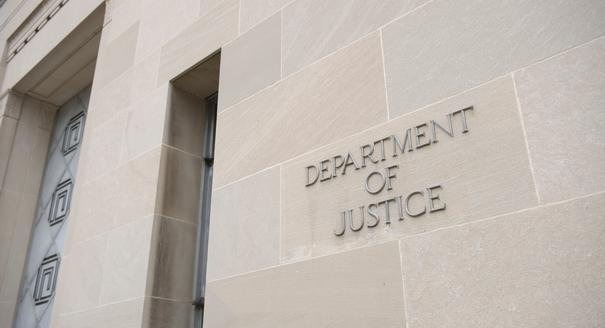DOJ confirms successful iPhone data extraction, withdraws encryption case against Apple [u]
The Department of Justice on Monday filed to withdraw a legal action compelling Apple's assistance in unlocking an iPhone linked to last year's San Bernardino shootings, saying it successfully gained access to, and extracted data from, the target device.
The Justice Department has moved to vacate a California court order compelling Apple provide aid in an ongoing FBI investigation into the San Bernardino shootings. With a working exploit, law enforcement agents no longer require help from the iPhone maker and cannot — or need to — assert the All Writs Act to force Apple's assistance.
"The government has now successfully accessed the data stored on Farook's iPhone and therefore no longer requires the assistance from Apple Inc. mandated by Court's Order Compelling Apple Inc. to Assist Agents in Search dated February 16, 2016," the government said in a court filing.
An unnamed government official informed USA Today of the Justice Department's plans on Monday, more than one week before federal prosecutors in the case are due to update the court on the efficacy of a third-party unlock method presented earlier this month. Court reporter Dan Levine of Reuters confirmed the decision on Twitter.
"It remains a priority for the government to ensure that law enforcement can obtain crucial digital information to protect national security and public safety, either with cooperation from relevant parties, or through the court system when cooperation fails," said DOJ spokesperson Melanie Newman in a statement to BuzzFeed News. "We will continue to pursue all available options for this mission, including seeking the cooperation of manufacturers and relying upon the creativity of both the public and private sectors."
Apple in February was ordered by a federal magistrate judge to comply with FBI demands for assistance in unlocking an iPhone tied to San Bernardino terror suspect Syed Rizwan Farook. The company resisted, arguing that the creation of a software workaround weakens the security of millions of iOS devices around the world and had implications on the public's right to privacy.
Due to its high-profile nature, the case spilled over into the public arena, sparking a contentious debate over the proper balance between civil rights and national security. The stakes were high for both sides, as an FBI win would set valuable precedent in asserting AWA as an effective evidence gathering tool, while Apple would gain protections against the same if it won.
In a last minute twist just one day prior to an initial evidentiary hearing, federal prosecutors called for a delay after being presented a potential workaround from an outside party. It appears the method is effective, rendering all prior arguments moot.
With a working iOS exploit in the wild, focus is bound to shift toward Apple. The company's assertions, which rested on the premise of a nigh unhackable operating system, have been upended by today's development. Not only does Apple need to recover from the inevitable PR debacle, but it must also work to secure its devices against an attack method that could be aired in public as court evidence.
The government has not yet determined whether or not it will furnish details of the vulnerability to Apple engineers, and it is not clear that the company is entitled to such information.
Aside from its prepared statements, the DOJ made no substantial comments on the matter during a media conference call, saying that releasing details on the exploit would be premature. Apple did not comment on today's news.
Update: Apple has issued a brief statement, as reported by BuzzFeed's John Paczkowski:
"From the beginning, we objected to the FBI's demand that Apple build a backdoor into the iPhone because we believed it was wrong and would set a dangerous precedent. As a result of the government's dismissal, neither of these occurred. This case should never have been brought.
We will continue to help law enforcement with their investigations, as we have done all along, and we will continue to increase the security of our products as the threats and attacks on our data become more frequent and more sophisticated.
Apple believes deeply that people in the States and around the world deserve data protection, security and privacy. Sacrificing one for the other only puts people and countries at greater risk.
This case raised issues which deserve a national conversation about our civil liberties, and our collective security and privacy. Apple remains committed to participating in that discussion."
 Mikey Campbell
Mikey Campbell











 Mike Wuerthele
Mike Wuerthele
 Malcolm Owen
Malcolm Owen
 Chip Loder
Chip Loder

 William Gallagher
William Gallagher
 Christine McKee
Christine McKee
 Michael Stroup
Michael Stroup
 William Gallagher and Mike Wuerthele
William Gallagher and Mike Wuerthele






